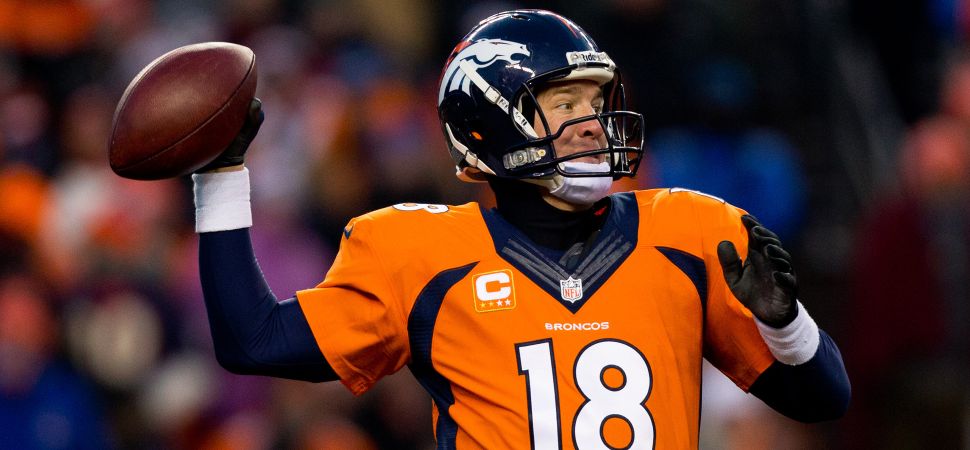No matter where your loyalties lay, you have to be impressed with the way Denver Broncos quarterback Peyton Manning goes about his business. He’s famously one of the hardest working, most detail-oriented leaders in the NFL.
Preparation
Manning approaches every game with unrivaled preparation. He studies film intensively to perfectly understand his opponents’ tendencies as part of an effort to improve his play and the ultimate outcome for his team. Stepping into this new role at your company, Manning would instinctively want to dig in to all of your most critical user behavior analytics to understand your customers. He would look at how visitors typically move around the website. What makes them buy? What makes them abandon the purchase? What conditions and environments create the most engagement? He would dig as deep as he could to understand the customer in her real environment, and then he would build–and continually refine–the customer experience roadmap around her to get the best results.
Taking the Initiative
When the game is on the line, especially when it doesn’t look promising, Manning wants the ball in his hands. If his team is winning by 30 points and he makes a terrific play, it’s not heroic or especially courageous. When tensions are at their peak, however, and the game is on the line, a fantastic performance shines brightly. Manning knows this scenario well: He holds the record for the most fourth-quarter comebacks by any NFL quarterback. When the website goes down on your biggest revenue day of the year, or when someone writes a scathing review on Facebook of your recently opened business, you want someone whose instincts are to grab the opportunity. When an angry customer calls, Manning would eagerly dive into the playbook and ask key questions to find out what it will take to assuage her. Does the customer need empathy? Reassurance that someone wants to help? Someone to tell her the level of service she’s received so far is unacceptable? Manning would take control of the call, firmly stating the steps he would to take to resolve the issue.
The Little Things
Although Manning is a master of the fundamentals, it’s the little things that propel his success and impact as a player. He constantly uses dummy calls and hand signals (mixed with real ones) at the line of scrimmage to confuse defenders, and he constantly varies the snap counts to keep his opponents at bay. And after he snaps the ball, he fakes passes, looks off defenders and maneuvers in subtle ways to maximize his chance for success. Similarly in the world of customer service, there’s nothing more important than doing the little things to make the customer feel valued. Manning would insist on delivering the most detail-oriented service possible. Just showing up to solve a problem or reply to a customer’s e-mail is not going to maximize your odds of turning that opportunity into a lifetime customer. Manning would insist on finding the emotional connection with the customer, anticipating her follow-up questions, and connecting the dots to create the best possible experience.
Team Culture & Buy-In
When Manning brings the offense onto the field, each player is part of the team’s mission. With confidence in their leader, the team rallies around a culture of high expectations and accountability. The right side knows what the left side is doing, and vice versa, and they can seamlessly adapt to various obstacles because they have all bought in to the same system. When managing the customer experience team, Manning would require complete buy-in from everyone. The experience for each customer must be consistently up to par, but even more importantly the team creating that experience must share a passion for the product. When a customer calls and asks how many strands are in a pom-pom, the agent could say, “We don’t have that information,” or he could go to the warehouse and count the strands in a pom-pom. And when challenges present themselves, every person on the team is aligned around the company’s values and practices, how to make things right for the customer, and why that course of action makes the most sense for the organization. Teams that share a belief in a bigger purpose will always outperform teams made up of individuals just simply doing their jobs.
Having Fun
High expectations, stress and responsibility can create an overly tense environment in sports. So when the time is right, Manning successfully injects a healthy dose of fun and humor into his life. At the Pro Bowl in Hawaii he jokes around with teammates and he can laugh at his own antics in Saturday Night Live skits. All of this reminds him and his teammates to keep the game in perspective. Pro tip for setting a light tone: Nicknames. Manning might take a cue from organizations like Bonobos, which dubs its agents “Ninjas,” or Fab.com, which calls its CSRs “Crackerjacks.” He knows that keeping those on the front lines of customer service happy is paramount in keeping customers happy. Now it’s game time. The question for your team is, who wants the ball? Adapted from an original post on INC by Jordy Leiser, Co-Founder and CEO of Stellaservice.com





